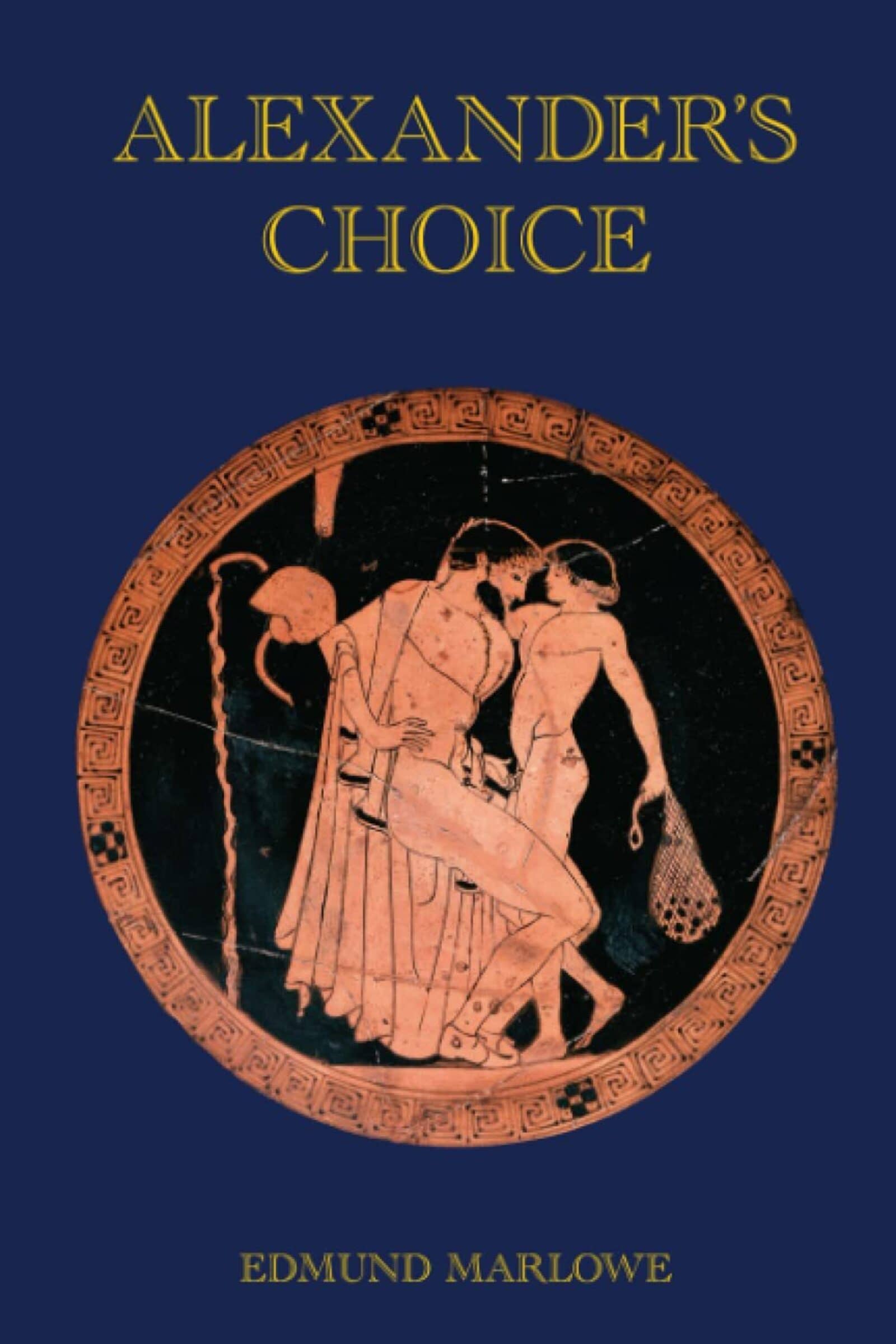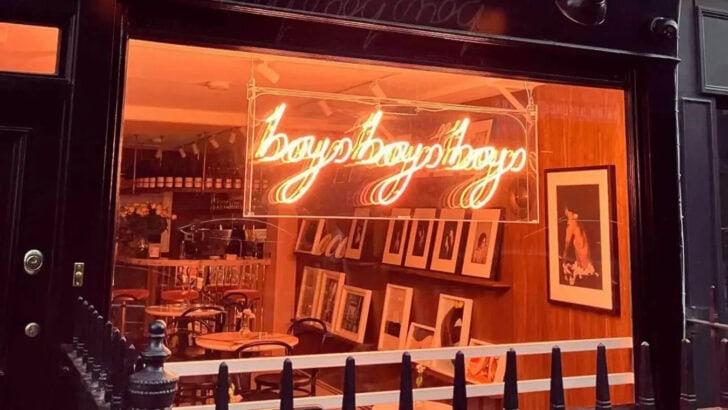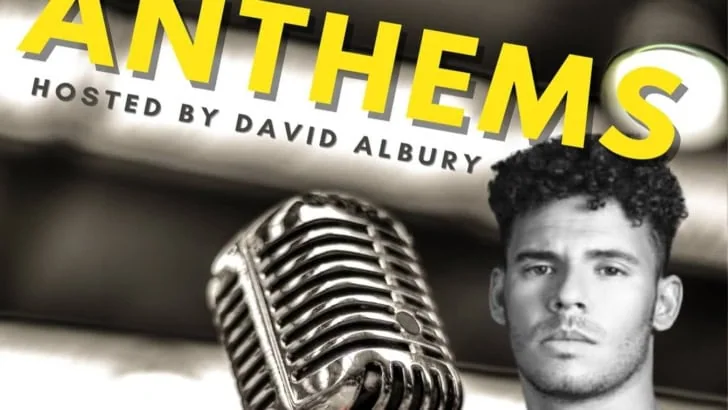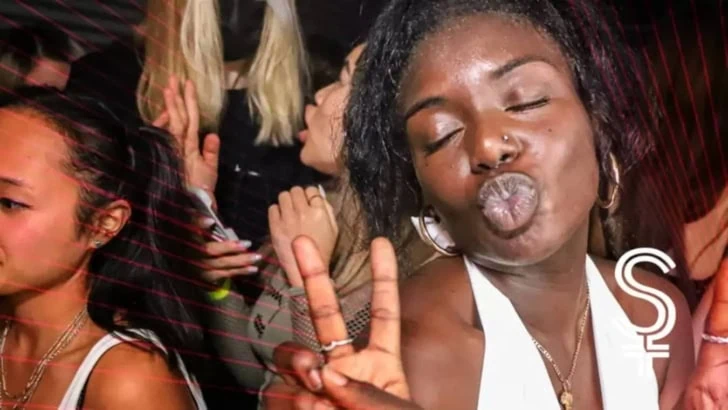QX were sent a book named Alexander’s Choice by Edmund Marlowe to review. As we read it we discovered it to be written for what we believe to be the wrong reasons.
Alexander’s Choice is set in the strange world of the English boarding school Eton, written by a self-confessed Old Etonian, operating under the pseudonym of ‘Edmund Marlowe’. Whether the former part of this moniker refers to sixteenth-century Faerie Queene poet Edmund Spenser, the latter appears to link directly to the Tamburlaine playwright Christopher Marlowe, he of the quote ‘all they who do not love tobacco and boys are fools’. For Alexander’s Choice follows the story of Alexander Aylmer, a beautiful blonde thirteen-year-old, who engages first in a homo-erotic friendship with another pupil and then, when he is fourteen, in a full-scale affair with one of his teachers.
As is emphasised by the title, Marlowe (as in Edmund) places significant stress on the fact that this sexual engagement is his boy protagonist’s choice to be made. The book claims on a certain level to be a defender of early pubescent sexuality and the right for all adolescents to wilfully indulge this urge should they have the chance. But then Edmund Marlowe is presumably not a hormonal teenager, the Eton depicted in his novel being that of the 1980s, which would place him in his forties now. Why he wrote and self-published this novel appears to be as an apologia or defence of pederasty, the act of man-boy love.
All this becomes clear only as the plot progresses though; initially the reader is introduced to Eton, along with the eponymous Alexander, fresh from prep school. In the blurb on the back – seemingly also written by Marlowe given that the text hasn’t passed through any publishing house – this world is described as ‘idiosyncratic but appealing’. It’s not. In the first warning signs that this entire 416-page novel may be a grievously misguided vanity project, Eton is painted as a paradigm of English splendour simply on account of its privileged families and the money needed to set foot within its hallowed walls. Whatever the college may be realistically like in 2013, passages such as the following are surely the nemesis of any PR agency trying to modernise Eton’s image with the general public:
‘Julian had been painfully aware of the greater prevalence of physical beauty at Eton, than in Wandsworth, where he thought he had looked as good as the average boy in the street. Whenever he went home and encountered his old acquaintances, he was struck by how often they were gawky, short or flabby compared with what he had become used to. Centuries of breeding and healthy living had resulted in tall, fit and facially beautiful boys being plentiful at Eton.’
One wonders if Edmund Marlowe might be acquainted with the Australian comedy series Summer Heights High and the private school exchange character within it Ja’mie King. Because the above quoted passage has a remarkable similarity to her expressed theories on social selection:
‘I think what happens is, like, out in the outer suburbs ugly people breed with other ugly people, so you end up with really fugly kids. So that’s why when you look around a public school, and on average, like, no offense, but people are more fugly. Whereas in a rich school area – shut up and let me explain – in a rich area, like, hotter people breed with other hot people and have hotter kids.’
The crucial difference between these quotes however is that Marlowe appears to mean his quote in all seriousness, whereas the creator of Ja’mie, Chris Lilley, is playing for belly laughs with the ludicrousness of his character’s words.
But a nostalgic idolisation of Eton, though ubiquitously prevalent, is not this book’s main raison d’etre. Before we delve into the fissures and cerebral cracks that infest the heart of Alexander’s Choice there are some few merits to be lauded in Marlowe’s writing, in the interests of fairness. Firstly, it is not badly written. True, it’s no Death in Venice, but the prose has a simplistic, readable tone to its construction, often almost ‘child-friendly’ one might say. Marlowe’s main characters are, on the whole, not dislikable and the elaborate back stories he creates for each protagonist, though often fantastical, provide depth to their personas.
It is his deep-rooted and constant attempt to change the reader’s mind to his way of thinking, skewering the text like a spitroasted hog, which is most disturbing. Alexander’s Choice is no exploration of paedophilia as in Nabokov’s Lolita, rather it is a polemic railing for, or even a paean to, the supposed lost glories of pederasty. Marlowe repeatedly sledgehammers the reader with reasons as to why this is unimaginably beneficial for a boy, under the pretence of exploring Ancient Greek literature and culture.
In his frantic need to display the physical connection between an adult male and a pubescent boy as something pure and golden, Marlowe manages to display a massive misunderstanding of basic human sexuality. Thankfully for the gay community, he is anxious to keep his characters free from an association with anything so sullied as contemporary adult male homosexuality. Therefore, apart from an occasional barrage of ill-thought out gay slurs – ‘limp-wristed men simulating ridiculously the opposite sex in the ludicrous hope of attracting a real specimen of their own’ – he neatly distances his book from LGBT culture, meaning that no freewheeling religious radical can pick it up as further misused weaponry against gay rights.
However, this does mean he faces a crises of realism. Marlowe goes to great lengths to illustrate the heterosexuality of his characters; towards the novel’s beginning he spends some time clumsily describing Alexander’s discovery of masturbation to girls. Yet when the characters meet one another and become inexplicably infatuated with the need to commit pederasty, huge U-turns in their psyches must be made. As a passionately straight, furiously wanking teenager, Alexander’s quick and unquestioning concession to anal penetration, first theoretically by his older sixteen-year-old friend, and then literally by his schoolmaster, came across more as wishful thinking on Marlowe’s part rather than any plausible examination of a boy’s sexual quandary.
Indeed, one wonders often in reading this novel how far this wishful thinking may inspire Alexander’s thoughts and opinions. Is there an expected literary lacunae between the author and his characters here? Or is this tome simply and transparently reflective of what Marlowe wishes the contemporary real world was like? Alexander’s reaction to finding out about the age of consent law, before he becomes lovers with his English teacher, is one of seemingly telling outrage, invoking a reference to the 1984 of another Old Etonian:
‘He realised with a jolt of dismay that the law presumably also forbade Damian to make love to him, if he should ever want to. George Orwell’s novel was obviously far closer to having been realised than he had imagined possible. How dare they! He resolved at once that if he ever got a chance to sleep with an adult, as he hoped more than ever he would, he would most certainly treat the law with the contempt it deserved.’
Later Alexander says to his teacher/lover, Mr Cavendish:
‘“You mean you think there’s something wrong with men having sex with boys? That’s just a stupid, modern idea… You told me yourself that some ancient Greek men did. Alexander the Great certainly slept with boys and so did his father and lots and lots of other great people in those days and they all thought it was good.”’
A lot of Alexander’s Choice smacks of delusional innermost fantasies transposed into a novel’s form. What it does tackle as a noteworthy criticism of the modern age though, is the hysteria with which we as a society treat any perceived act of paedophilia, regardless of its context. Whether the case be the entirely abhorrent abduction of a five-year-old child, or the elopement of a fifteen-year-old girl with her older lover, the tabloid press invoke the same sensational terminology in its reporting.
As it happens, just as I was reading Marlowe’s novel, the front page story of the Metro newspaper was concerning ‘disgraced teacher’ Jeremy Forrest, 30, who eloped to France with his fifteen-year-old lover, a pupil at his school. The facts of the case, as reported on the front page, state that Forrest mouthed ‘I love you’ to the girl in court, she gave her evidence as being entirely in love with him and having instigated the affair, and upon Forrest being sentenced guilty she broke down in court, wept and screamed ‘I’m sorry’ as he was lead away. A prominent social psychologist, Dr Sandra Wheatley, is quoted within the paper as saying: ‘my instinct tells me this was a young couple in love.’ Yet the Metro’s headline leads with: ‘A school predator without remorse.’
Both Jeremy Forrest and his lover, now sixteen, vow to continue their relationship and get married once he is out of jail. Can we really authoritatively and without guilt just tell the girl that she is wrong and doesn’t know what she wants? Her father publicly supports the relationship, a fact left out of the Metro’s reporting. We want our teenagers to act responsibly and conscientiously, to not hang around shopping malls in intimidating, hooded gangs, and yet we tell them also they cannot make a decision for themselves about love and sex.
But, how can I voice support for the girl in Forrest’s case and then condemn a book such as Alexander’s Choice? Because the girl’s voice is her own; Alexander’s voice is only that of Marlowe’s. And although the girl’s face is blurred out, her body has quite clearly reached sexual maturity in the picture published of her and Forrest together. Marlowe consistently and directly advocates physical paedophilia as the only acceptable format in which his characters can ‘love’ one another. Any evidence of sexual maturity or the onset of bodily puberty is painted as unattractive:
‘It seemed obvious to him that boys Alexander’s age, with their smooth, hairless and curvaceous bodies, fresh complexions, slim waists and silky hair were closer to women than men in their appearance, though somehow even more exciting.’
This attempt to present pederasty as a pseudo-acceptable excuse for heterosexual attraction is forgotten later on in the novel when Edmund Marlowe writes:
‘Though it curved delightfully outwards behind, a boy’s hips were barely wider than his waist, which gave his bottom the effect of being also much rounder and more delicate than a man’s or woman’s.’
‘He no longer had the slender grace of a boy. His features were all hard, his hair coarse, his nose and chin big, his limbs and behind heavy and muscular and, most grotesquely of all, covered with hair, which also appeared as stubble on his face if he did not shave for a few days. Imagining himself taking Alexander’s place in Mr Cavendish’s bed made him shudder at once. The beak’s reaction would surely be like that of the hero in the film She, when the beautiful young woman in his arms was quickly transformed into a hideous old one, for the difference between a pubescent boy and a young man as an object of desire was at least as great.’
I have spoken at length on this novel because I believe it has been written for the wrong reasons. Perhaps we should listen more to our teenagers’ voices on their own development and sexuality, but in fact there is no choice for the Alexander of Alexander’s Choice; in Marlowe’s warped version of the world there is only ever one course of action his pubescent characters will choose to make (unless they are unattractive). That the novel is reminiscent of a children’s book in its prosaic layout becomes an insidious design when one considers an underlying subtext to its structure that I originally couldn’t put my finger upon: I realised I felt that I, as a reader, was being groomed to believe in the wonders of pederasty.
Finally, what is saddest about Edmund Marlowe’s novel, and most pitiful about pederasty in general, is the inherent transience of the ‘love’ by which the characters’ sexual actions are cloaked. With Jeremy Forrest and his fifteen-year-old lover, they profess their wish to get married, and Wheatley the social psychologist states they eloped ‘because they believed in a future’. As repeatedly emphasised by Marlowe, there is no future for the fourteen-year-old Alexander and his teacher. Once puberty has onset and Alexander is no longer a childlike boy, their intricately described ecstasy of love must fade to a ‘deep friendship’. Each pederast is necessarily like Tantalus in his pool, doomed to reach forever for a fruit that will never stay within their grasp.



















